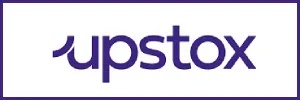A Delhi-based company recently decided to raise money for an expansion project through an initial public offer. But the promoters held back their plans as the bulls ran amok in the stock market. The Sensex soared 3,000 points in a matter of 30 days and while many pundits cheered the bulls on, the skeptics raised an alarm. The board of the small company was advised to wait and watch – with its size, it wasn’t worth the risk.
“These companies have the potential to grow fast. They need the right type of capital – free capital, where the entrepreneur is allowed to grow faster,” says N Balasubramanian, former CMD of SIDBI, who sits on the boards of many companies including Standard Chartered Bank. Raising money through an initial public offer (IPO) is an option, but one needs to be careful of valuations in a volatile market.
Difficulty in raising risk capital has always been a challenge for SMEs because of their size and style of operation. And while PE firms have emerged as the perfect intermediate solution for such companies, giving them a fresh lease of life beyond VC-funded growth, an IPO is the next logical step.
Tecpro Systems, which services large infrastructure projects in the power, cement and steel sectors, is at such a stage. One-and-a-half years after he founded the company, Amul Gabrani chose the PE route to fund growth, with Avigo Capital Partners, a New Delhi based private equity (PE) fund bringing in Rs 35 crore in multiple tranches over three years. Now Gabrani is getting ready for an IPO. “We have reached a threshold level where we need to expand. To grow beyond this we have to be listed,” he says.
Listing on the primary exchange isn’t an easy option for most SMEs since the compliance norms stipulated by SEBI require overhauling internal systems and adherence to strict corporate governance standards. The cost of listing through an IPO can also be daunting. But importantly, small business owners often cannot grapple with the complexities of the primary or secondary markets. “They are good in their own business. But in the financial world there are new products coming in all the time. They do no have the wherewithal, manpower or understanding to follow all the guidelines,” says Balasubramanian. “Moreover, the present rules and regulations set up for IPOs are cumbersome, costly and elaborate.” Continued…Next >>
Source : economictimes.indiatimes.com








